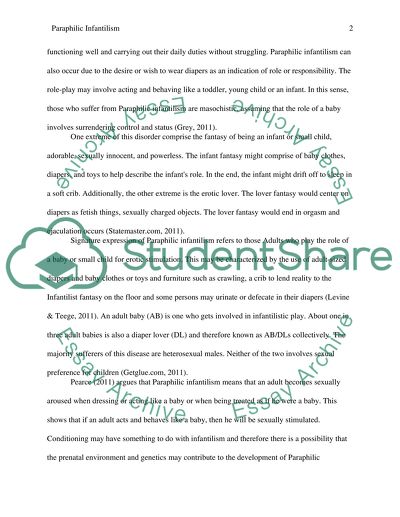Cite this document
(“Paraphilic Infantilism Research Paper Example | Topics and Well Written Essays - 4500 words”, n.d.)
Retrieved de https://studentshare.org/psychology/1392133-paraphilic-infantilism
Retrieved de https://studentshare.org/psychology/1392133-paraphilic-infantilism
(Paraphilic Infantilism Research Paper Example | Topics and Well Written Essays - 4500 Words)
https://studentshare.org/psychology/1392133-paraphilic-infantilism.
https://studentshare.org/psychology/1392133-paraphilic-infantilism.
“Paraphilic Infantilism Research Paper Example | Topics and Well Written Essays - 4500 Words”, n.d. https://studentshare.org/psychology/1392133-paraphilic-infantilism.


